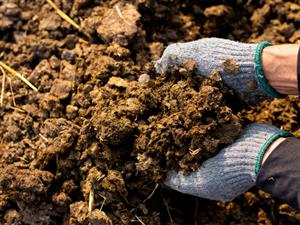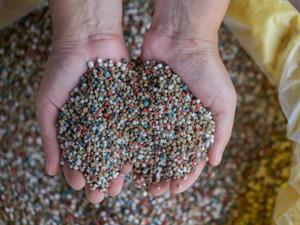PDF chapter test TRY NOW
The process of adding manure and fertilisers to replenish soil fertility in the fields is called manuring.
Continuous cultivation of crops makes the soil poor in nutrients. To overcome the loss of nutrients, farmers add manure and fertilisers to the soil in the form of nutrients for the healthy growth of plants.
Substances added to the soil in the form of nutrients to support the growth of plants are called manures and fertilisers.
Fertility refers to the capacity of the soil to supply nutrients to the crops in an adequate amount and suitable proportion.
These nutrients are required for plant growth.
Manure is an organic substance obtained through the decomposition of plant and animal wastes (organic wastes). Farmers segregate and dump the organic wastes in a pit (compost pit) at an open place and allow it to decompose. The decomposed matter is used as organic manure, called compost.
The decomposition process is through microorganisms. Farmers also use earthworms to digest and decompose organic wastes in compost pits, which is called vermicomposting.

Manure
Advantages of compost:
- Maintains soil fertility.
- Protects from erosion (wind and water).
- Prevents loss of nutrients through runoff and leaching.
- Increases the water-holding capacity, soil aggregation, soil aeration, and permeability.
Fertiliser is a substance added to the soil to improve the growth and yield of plants.

NPK fertiliser
Fertilisers cause water pollution, and excessive use of fertilisers makes the soil infertile. The long-term use is, however, under dispute by environmentalists. Thus farmers are advised to use more manure and less fertilisers which are required for the particular farm or the cultivated plant.
Organic manure is considered better than fertilisers. Since manure not only enhances the water-retaining capacity of the soil, it makes the soil porous making the flow of gases easy. It also improves the texture of the soil, which help in the growth of the plant.
